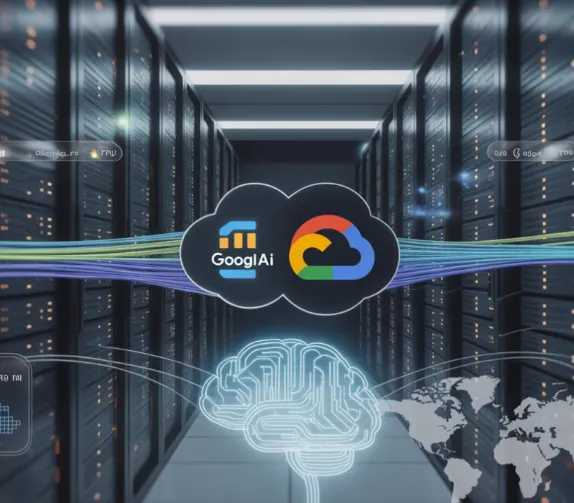OpenAI has secured a significant partnership with Google Cloud, marking a surprising shift in the landscape of artificial intelligence and cloud computing. Although OpenAI has long been associated with Microsoft, this new collaboration highlights the growing need for expansive computational power to support the ever-increasing demand for AI models.
A Shift in Cloud Partnerships
The deal, finalized in May 2025 after months of negotiations, signals a strategic move by OpenAI to diversify its cloud infrastructure beyond its existing partnership with Microsoft. This decision aligns with OpenAI’s expanding operational needs, particularly in powering high-demand projects like its Stargate initiative. By tapping into Google Cloud’s capabilities, OpenAI aims to ensure its AI models remain scalable and efficient.
For Google, this partnership brings a valuable new customer to its cloud platform. Google will supply the necessary computing resources to help OpenAI enhance its AI training processes and real-time model operations. Despite the competition between Google’s own AI ventures, such as its Gemini platform, and OpenAI’s popular ChatGPT, Google has acknowledged that the AI space can accommodate multiple players, paving the way for collaboration.
Why the Deal Makes Sense for Both Parties
Since the launch of ChatGPT in late 2022, OpenAI has faced mounting pressure to boost its computing capacity. Running advanced language models and executing real-time AI tasks requires immense processing power. In a statement earlier this year, OpenAI announced its annualized revenue had reached $10 billion, driven by the soaring demand for its AI tools. To meet this growing need, OpenAI has also entered into multi-billion-dollar agreements with companies like CoreWeave and forged new partnerships with chipmakers such as SoftBank and Oracle.
For Google, the timing couldn’t be better. The company is working to increase the adoption of its proprietary hardware, Tensor Processing Units (TPUs), which were once reserved for internal use but are now being made available to external clients. By adding OpenAI to its client list, Google strengthens its position in the highly competitive cloud market. Google Cloud, which generated $43 billion in revenue last year, is a crucial part of Alphabet’s business model, and AI-driven companies are becoming increasingly important customers.
The Underlying Challenges for Google
However, the deal comes with its challenges. Internally, Google is navigating the complexities of managing its AI divisions, particularly DeepMind, which competes directly with OpenAI. Google CEO Sundar Pichai will need to balance the interests of Google’s enterprise customers with those of its internal AI teams, which could lead to some friction when distributing cloud resources.
Furthermore, Google’s cloud infrastructure is already under significant pressure. The company’s finance chief revealed in April that there wasn’t enough cloud capacity to meet demand in the previous quarter. As Google ramps up its investment in AI—projected to reach $75 billion in capital spending this year—it will need to ensure that it can meet both internal and external demands without overextending itself.
The Bigger Picture
Despite these challenges, the Google-OpenAI partnership is a powerful statement about the future of AI and cloud computing. While Google remains focused on its own AI ambitions, it is clear that the company sees the value in providing cloud services to OpenAI. As the AI industry continues to evolve, alliances like this one will likely become more common, reflecting the immense demand for computing resources in this rapidly growing field.
In the long run, this collaboration could lead to further innovations in AI, with both companies benefiting from the shared infrastructure and expertise. As OpenAI continues to break new ground in AI development, this partnership could serve as a crucial foundation for the next wave of advancements.







